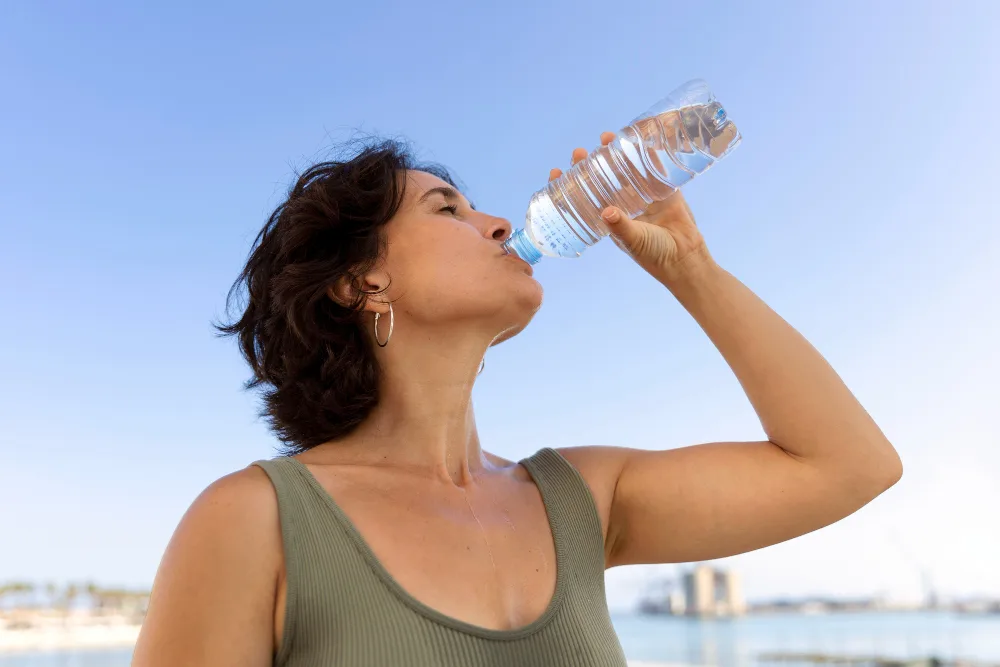Tips and Tricks for Meeting Your Daily Water Intake
Hydration in Bariatric Dieting can sometimes be overlooked, even though it plays a pivotal role in post-surgery success. Whether you’ve undergone a gastric sleeve, gastric bypass, or another bariatric procedure, proper fluid intake supports digestion, nutrient absorption, and long-term weight management. Because of anatomical changes that limit stomach capacity, you might find it challenging to drink enough water and other healthy fluids every day. This comprehensive guide covers why hydration is so essential, the issues that can arise without it, and practical methods to incorporate more fluids into your daily schedule. By mastering these insights, you’ll be better equipped to maintain steady progress and avoid common post-operative pitfalls—ultimately feeling more energized and confident in your new lifestyle.
Why Hydration Matters for Post-Bariatric Success
The Critical Role of Fluids After Weight Loss Surgery
Bariatric procedures drastically alter your digestive tract, limiting the volume of food and liquids you can handle at once. This creates unique conditions regarding hydration in bariatric dieting:
- Smaller Stomach Capacity
- You can’t consume large quantities of water in one go, which requires more frequent, smaller sips.
- Shifts in Nutrient Absorption
- Adequate fluids help transport vitamins, minerals, and medications through your system.
- Lower Tolerance for Sugary Drinks
- Sweetened beverages can trigger dumping syndrome or lead to weight regain.
Proper hydration can also mitigate constipation, a common issue following surgery that arises due to lower food intake and possible decreased fiber consumption. Additionally, ensuring a steady flow of fluids helps your kidneys flush out toxins and maintain normal bodily functions.
Consequences of Inadequate Water Intake
When you fail to meet recommended fluid targets, several complications can emerge:
- Dehydration: Symptoms include headaches, dizziness, fatigue, and dark urine.
- Plateaued Weight Loss: Inadequate water may slow your metabolic rate, stalling progress.
- Increased Cravings: Thirst can mask as hunger, prompting overconsumption of snacks or meals.
- Nutrient Deficiencies: Without enough fluid, you might not effectively process dietary proteins or essential vitamins.
According to the American Society for Metabolic and Bariatric Surgery, dehydration remains a leading cause of emergency room visits among bariatric patients, illustrating just how significant fluid consumption is to a smooth recovery.
Overcoming Hydration Hurdles in Bariatric Dieting
Recognizing Barriers and Setting Realistic Goals
Post-surgery, you may struggle with new fluid consumption norms:
- Restriction of Stomach Size
- Sipping liquids might feel uncomfortable or fill you up quickly, reducing appetite for nutrient-dense meals.
- Taste Aversions
- Changes in taste preferences could make plain water unappealing, reinforcing daily fluid deficits.
- Lack of Reminders
- Busy schedules often lead to forgetting small sips throughout the day.
Addressing these barriers begins with clear objectives—for instance, aiming for 48–64 ounces of fluid daily, as many healthcare providers recommend. Speak with a registered dietitian or your surgical team for an individualized guideline.
Choosing Low-Sugar, Low-Acid Beverages
While water remains the gold standard for hydration in bariatric dieting, other liquids can help fulfill your quota:
- Infused Water
- Enhance plain water by adding cucumber, lemon, or berries for subtle flavor without sugar.
- Herbal Teas
- Choose caffeine-free varieties (e.g., chamomile, peppermint) to avoid dehydration from diuretic effects.
- Low-Fat Broths
- Vegetable or chicken broths can offer savory variety and minor nutrient boosts.
- Decaffeinated Coffee or Tea
- Limited intake of decaf coffee or tea may complement water, ensuring minimal caffeine intrusion.
For more beverage-related tips, check Bariatric Sauce Solutions: Flavor Without Guilt, which also touches on how to add low-calorie flavor to your meals and drinks.
Essential Factors Affecting Hydration in Bariatric Dieting
Sipping vs. Gulping
Large gulps can overfill your smaller stomach pouch, causing discomfort:
- Sipping Strategy
- Take small sips frequently. Aim to spread fluid intake throughout the day, not concentrate it all at once.
- Timing Between Meals
- Many surgeons recommend not drinking fluids 30 minutes before or after a meal to prevent crowding out food.
- Bottle or Cup Selection
- Use bottles with sip spouts or straws only if your surgical team approves, as some patients experience extra gas from straw usage.
Temperature Preferences
Finding your ideal beverage temperature can influence how easily you drink:
- Room Temperature Water
- Some prefer lukewarm fluids to minimize stomach cramps or tightness.
- Chilled Liquids
- Others find cold beverages more palatable, especially infused water with ice.
- Warm Options
- Gentle broths, decaf tea, or warm lemon water might soothe the stomach and encourage sipping.
Balancing Hydration with Protein Shakes
Protein shakes often factor into early post-op diets:
- Tracking Both
- Remember that the liquids in protein shakes can partially count toward fluid targets but contain calories or sweeteners.
- Spacing Out
- Avoid downing a protein shake and water simultaneously, risking discomfort.
- Quality Over Quantity
- Choose low-sugar, high-quality protein powders that support muscle retention without excessive additives.
Tips for Meeting Hydration Goals Consistently
Creative Methods to Elevate Water Intake
- Flavor Infusions
- Mix fresh herbs like basil, mint, or rosemary with fruit slices (e.g., strawberry or lemon) to produce refreshing taste.
- Mini Goals
- Set hourly or incremental fluid targets (e.g., finishing half a bottle by mid-morning).
- Smart Gadgets
- Use a water-tracking app or a bottle that lights up or vibrates to remind you to drink regularly.
Scheduling Hydration Breaks
Breaking down daily fluid needs into scheduled segments fosters more manageable sips:
- Morning Boost
- Start your day with a small glass of water or herbal tea to awaken digestion.
- Midday Check-in
- By lunchtime, aim to have consumed around half of your daily fluid target.
- Afternoon Reminders
- Incorporate another few ounces while planning dinner or preparing a snack.
- Evening Wrap-Up
- Sip slowly in the hours before bed, avoiding too much fluid right at bedtime to prevent nighttime bathroom trips.
Tracking Progress for Accountability
- Fluid Journals
- Log daily intake to see trends, note days you fell short, and adjust accordingly.
- Apps and Tools
- Download a hydration app that notifies you to drink water, making the process more interactive.
- Celebrate Milestones
- Applaud yourself when you consistently meet fluid goals for a week or month.
For additional scheduling pointers, explore our post on Bariatric Meal Prep: Quick Hacks for Post-Surgery Success, emphasizing timely hydration alongside meals.
Overcoming Common Dehydration Risks
Post-Exercise Replenishment
Physical activity can cause fluid losses via sweat, especially vital for post-bariatric:
- Plan for Extra: Increase your daily water intake by 8–12 ounces per 30 minutes of moderate exercise.
- Electrolyte Alternatives: If you sweat heavily, consider low-sugar electrolyte drinks, but watch for added sweeteners.
Travel and Busy Lifestyles
A hectic schedule or traveling may disrupt your hydration routine:
- Carry a Water Bottle
- Keep an easily accessible, marked bottle in your bag or car.
- Use Reminders
- Alarms, phone apps, or digital trackers can help you sip regularly on the go.
- Air Travel
- Pressurized cabins are dehydrating, so aim for more frequent sips, especially on longer flights.
Dumping Syndrome Awareness
In the early post-op phase, drinking large volumes or sugary beverages can cause rapid gastric emptying:
- Low-Sugar Focus: Even fruit juices should be diluted or minimally consumed.
- Small Sips: Slowly sipping water or tea helps your body handle fluids more efficiently.
Additional Hydration-Supportive Foods
High-Water Produce
Boost fluid intake through watery vegetables and fruits:
- Cucumbers: Composed of around 95% water, great for light salads.
- Zucchini: Mild taste, ideal for stir-fries or “zoodles.”
- Melons: Watermelon or cantaloupe, in small portions, if tolerated.
- Leafy Greens: Lettuce, spinach, or kale offer fluid content plus vitamins.
Low-Sodium Broths and Soups
Light soups can bridge fluid gaps:
- Vegetable or Chicken Broth
- Warm, soothing, and low in calories when choosing low-sodium options.
- Pureed Soups
- Blend cauliflower, spinach, or tomatoes for a nutrient-dense meal.
- Tracking Salt
- Ensure you choose reduced-sodium versions to maintain heart and kidney health.
Links to Books and Additional Support
Exploring resources can broaden your hydration strategy:
- Bariatric Cookbook: Showcases balanced meal recipes with recommended fluid guidelines.
- Bariatric Air Fryer Cookbook: Focuses on low-oil cooking but also addresses complementary fluid strategies in some chapters.
- Gastric Sleeve Cookbook: Emphasizes portion sizes and fluid considerations for sleeve patients.
- Gastric Bypass Cookbook: Tailored for bypass recipients, offering hydration-friendly side dishes and tips.
In addition, professional groups like the Academy of Nutrition and Dietetics provide thorough best practices for post-op hydration and nutritional support.
Key Takeaways for Sustaining Hydration in Bariatric Dieting
- Sip Instead of Gulp: Spread fluid intake throughout the day to accommodate a smaller stomach.
- Select Low-Sugar, Low-Acid Options: Infused water, herbal teas, and light broths prevent sugar spikes or digestive discomfort.
- Increase Fluid Post-Workout: Replace sweat losses with extra water, possibly small amounts of electrolytes if necessary.
- Use Flavor Enhancers: Herbs, citrus, and low-sugar flavorings add taste while remaining bariatric-friendly.
- Monitor and Record: Track your hydration goals to stay on course and detect shortfalls quickly.
- Consider Tolerances: Warm beverages, cold drinks, or room-temperature water—experiment to find your comfort zone.
- Pair with a Balanced Diet: Proper hydration complements the nutrient-rich meals essential for ongoing weight management and well-being.
Adopting these strategies fosters consistency and empowerment. You’ll find that a thoughtful hydration routine not only supports your newly adjusted digestive system but also encourages energy stability, clearer thinking, and a faster rebound from workouts or daily stressors.


Leave a Reply